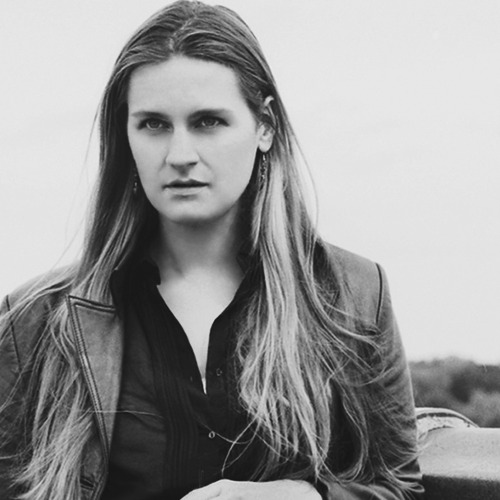[For the May/June issue of Arbus.]
The Pop-Jazz Prototype:
Madeleine Peyroux: A Musical Change-Agent
For years, Madeleine Peyroux (born April 19, 1974) has been a darling of public radio, a perdurable presence in every Starbucks, Borders and Barnes & Noble—a singer-songwriter who anticipated the massive shift in the music industry over the past decade. Her evolution from anonymously busking on Parisian streets to global acclaim is a story she’s told herself, in songs written for five albums on three different labels. The reason it took so long for Peyroux to get over in the business is that it simply was not possible when she started, 20 years ago; there was no market structure to support and sustain her artistry.
In a sense, the story of Madeleine Peyroux can be viewed the story of seismic shifts in the industry itself. Her presence as one of the top acts at this year’s Jacksonville Jazz Festival can be also viewed as a shift in the festival, which is making more of an effort to embrace the traditional jazz artists favored by fans and critics alike. Peyroux has always been one those artists hard-core jazz fans would have loved to see here, but never thought they actually would. When her name popped out from the lineup sheet, it was like a pleasant hallucination.
After three albums for Rounder, Standing On the Rooftop is Peyroux’s first for Decca Records, a legendary British imprint founded in 1929 and now owned by Vivendi/Universal. It holds a special place in the hearts of jazz fans for its early advocacy of Louis Armstrong and Duke Ellington, but it has also been a major contributor to the American vocal tradition, in all its many forms. The Decca catalog is, arguably, the most extensive cross-section of American and British indigenous music ever compiled. (This year’s jazz festival’s headliners, Sonny Rollins and Chick Corea, are also currently signed to Decca.)
Decca has maintained that tradition into the present. Peyroux, an early auteur of the new hybrid style, joins a roster featuring Melody Gardot, Sarah Harmer, Sonya Kitchell, Imeda May, Jane Monheit, Krystina Myles, Hayley Westerna, Laura Wright and Nikki Yanofsky, in addition to a whole crop of up-and-coming crossover classical talents.
These ladies are the latest in a line that has included many of the all-time greatest female singers of jazz, blues, pop, gospel, country and classical music, people like the Andrews Sisters, Tori Amos, Dee Dee Bridgewater, Judy Garland, Connie Boswell, Jenny Lou Carson (first woman to write a #1 hit country song) Patsy Cline, Rosemary Clooney, Kathleen Ferrier, Ella Fitzgerald (youngest woman to lead a big-band), Jane Froman, Marilyn Horne, Kathy Kirby, Brenda Lee, Peggy Lee, Ute Lemper, Annie Lennox, Loretta Lynn, Vera Lynn, Dolly Parton, Leontyne Price, Lita Roza (first British singer to chart #1, with “how Much Is That Doggie In the Window?”), Sister Rosetta Tharpe, Kitty Wells (the first female country star) and Aziza Mustafa Zadeh. Note also that Billie Holiday, to whom Peyroux’s voice has been so frequently compared (although it’s changed so much over the years), recorded one album for Decca, The Lady Sings (1956), at their famous studio at Manhattan’s Pythian Temple.
For this album, Peyroux—who started out singing alone on streetcorners—has assembled a sterling cast of collaborators, including pianist Allen Toussaint, violinist Jenny Scheinman, guitar master Marc Ribot and Meshell Ndegeocello. Listeners will by now have an established idea of Peyroux the singer, but she challenges those perceptions with her most adventurous album yet, taking bold risks with an already-lucrative commercial brand. Producer Craig Street is best-known for his work on Norah Jones’ first album, arguably the most important record of the 21st century, as well as people like John Legend and Cassandra Wilson. He crafted a great sound, dense and haunting, but clear—a fine sonic foundation for Peyroux’s voice.
Peyroux wrote or co-wrote eight of the album’s 12 songs. Scheinman co-wrote two, as did David Batteau; “The Kind You Can’t Afford” was co-written with Rolling Stones bassist Bill Wyman. The album opens with “Martha My Dear”, a Lennon/McCartney chestnut. “Lay Your Sleeping Head, My Love” is a sleek, sophisticated lullaby for grown-ups, written by Ribot and Wyston Hugh Auden. The title-track sounds almost like indie-rock—anthemic affirmations over dissonant chords. When she sings “I have conquered all my fears”, the listener believes her.
For this writer, the album peaks with Peyroux’s lurching, ethereal cover of Robert Johnson’s “Love In Vain”—one of the finest things she has ever recorded. Even experiments like the soft summery funk of “Meet Me In Rio” come off nicely; it’s iPod-ready for beach runs. But through it all, that voice is like the center-line on a road stretching and winding through past eras of music history, on into those unfolding as we speak. With a serious new album on a major jazz label, the years ahead may be her best yet. And even if she never quite eclipses the brilliance of Dreamland, to simply survive, thrive and progress is a victory, in and of itself.
sheltonhull@gmail.com; April 16, 2012


